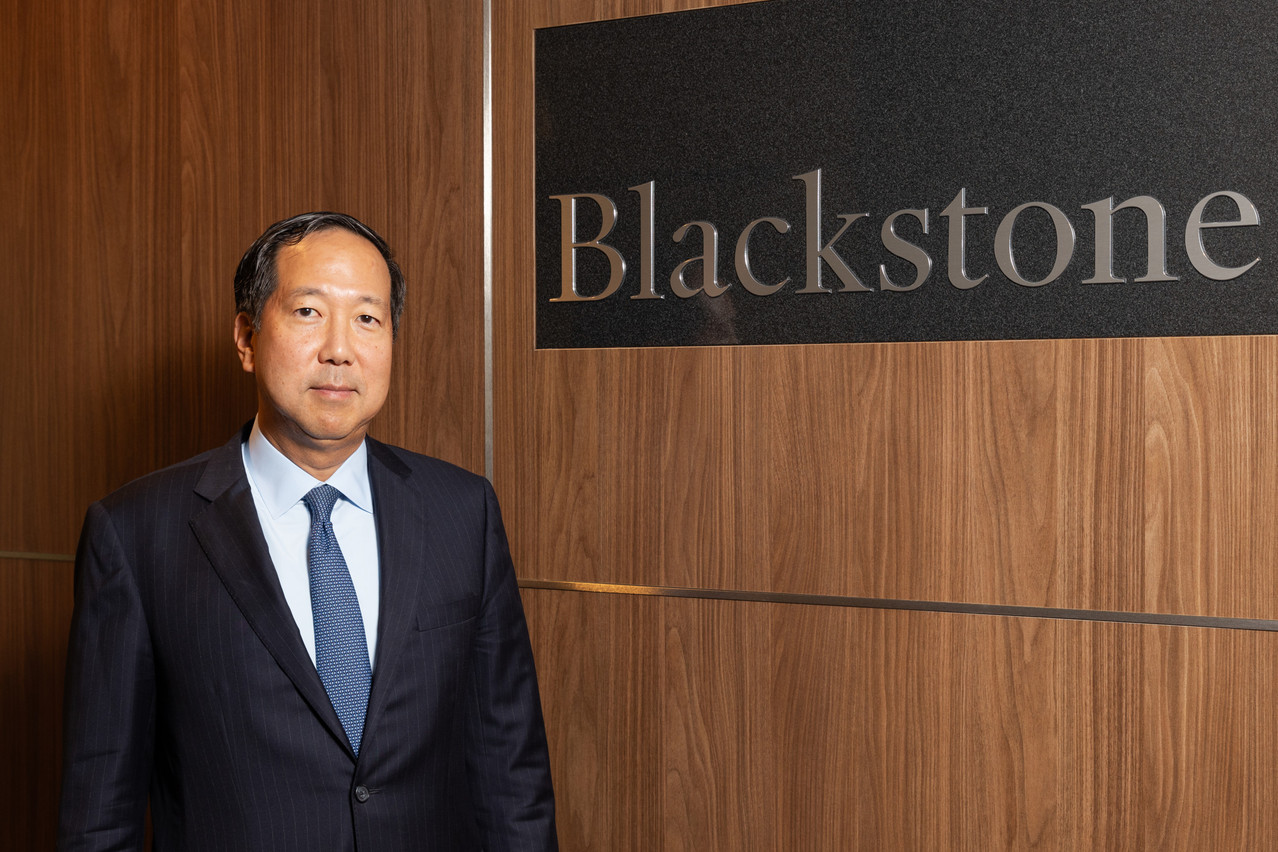Blackstone, one of the world’s largest private market investment outfits, has been in Luxembourg for more than 20 years. It set up Revantage Europe (300 employees in Luxembourg) in 2002, a provider of real estate services to alternative asset managers and BX Fund Services in 2012 which supports Blackstone’s private equity funds (e.g., accounting, financial reporting, compliance, legal, etc.).
“In 2017, we started Blackstone European Fund Management (BEFM) which became our AIFM [alternative investment fund manager] [..] a milestone for the firm […] and we chose Luxembourg. […]. We went from four Blackstone employees, separate from Revantage and [BX]. And now we’re 40,” said Michael Chae, global chief financial officer at Blackstone during an interview in their new office in Cloche d’Or.
“Since 2017, our firm’s assets under management have almost tripled. They’ve gone from about $371bn in 2017, globally, up to over a trillion as of the second quarter, which was a big milestone in our industry,” said Chae. He noted that the growth of employees at Blackstone Luxembourg and its affiliates “has mirrored the growth of the firm, globally.”
Substance in Luxembourg: substantial?
The operations in Luxembourg are responsible for the oversight of the fund management platform, risk management, valuations, portfolio management, fund finance, compliance and AML.
Asked whether some investment decisions were made in Luxembourg, Chae answered that the group has an “integrated central investment committee and decision-making body.” Questioned on whether Luxembourg was part of these committees, Chae responded that “they’re part of the integrated organisation that make those investment decisions or activities.”
Financial vehicles of choice
Blackstone splits their vehicles into two buckets: the special limited partnership (SCSp) which is an “unregulated partnership […] very favoured in the alternatives” commented Chae, and the UCI, part two, on retail products and regulated funds structures. Backstone is not using the European long-term investment fund (Eltif) structure yet, but may move into them at some point.
Aiming to deliver the “best of both worlds”
BEFM offers a flexible structure as the group proposes global funds (investments across the world) and European-focused specialised funds investing in infrastructure, real estate and credit investments to US and European based investors.
Chae explained that BEFM is managing some global funds and “some European-focused funds in different asset classes.” The profile of the investments managed in Luxembourg is “largely similar” to the profile of investment in the US.
Chae outlined that almost all their investment strategies (corporate private equity, private credit, lending to companies, real estate, secondaries and hedge funds) invest in Europe “as part of their global strategy.”
Despite the strong intermediation role played by banks in Europe, Chae claimed that Blackstone is a leading player in the so-called “direct lending” which, for the “most part,” is lending to sponsor private equity funds “to help finance their acquisition of businesses.”
Real estate: a core business
Chae claimed that Blackstone is the largest commercial real estate investor in the world. It will come as no surprise that the firm “is looking to build a large-scale European real estate platform in areas such as logistics.” Luxembourg is seeing some benefits, as the group owns Mileway, a last-mile logistics real estate company that has 87 employees. One of their largest offices is in Cessange. Created in 2019, Mileway manages a portfolio of around 2,000 properties across 10 countries.
It has not been a smooth sailing year for Blackstone’s Breit, though, a large non-traded perpetual retail product for individual investors (US assets only) which received intense press coverage earlier this year. On the back of negative headlines on traditional offices and malls in the US, the firm applied limits to cash withdrawals which culminated to a peak level of $5.3bn in January 2023. It declined in February but increased again in March to $4.5bn after the .
What they call whitespace are often areas which we’ve covered.
Despite the fourth consecutive month of declining repurchase requests, Blackstone still reported under $3bn of redemption demands in August. Yet, Chae claimed that their Breit delivered a +12% annualised net return, net of fees, since its inception in 2017, a performance supported by their investments in logistics, multi-residential including student housing and data centres. He thinks that “the product worked as intended“ given that it is a semi-liquid fund with monthly redemptions, subject to limits.
Growth businesses
When discussing growth products, Chae noted their focus on the most senior part of the capital structure of their direct lending businesses, where the loan-to-value is at around 42% given their “attractive” risk-return profile, demand for significant scale investments in infrastructure and the energy transition (equity and credit), secondaries and retail products across different strategies.
Chae thinks that the secondary market, “meaning the ability for investors or limited partners to access liquidity, remains very small, i.e., a single digit percentage of the overall market” and is therefore prone for significant upside potential.
Would Blackstone wish to have a competitor’s product in its stable?
“Our competitors generally study our business to figure out where to go,” said Chae. He added: “what they call whitespace are often areas which we’ve covered.”
This article was published for the Delano Finance newsletter, the weekly source for financial news in Luxembourg. .

